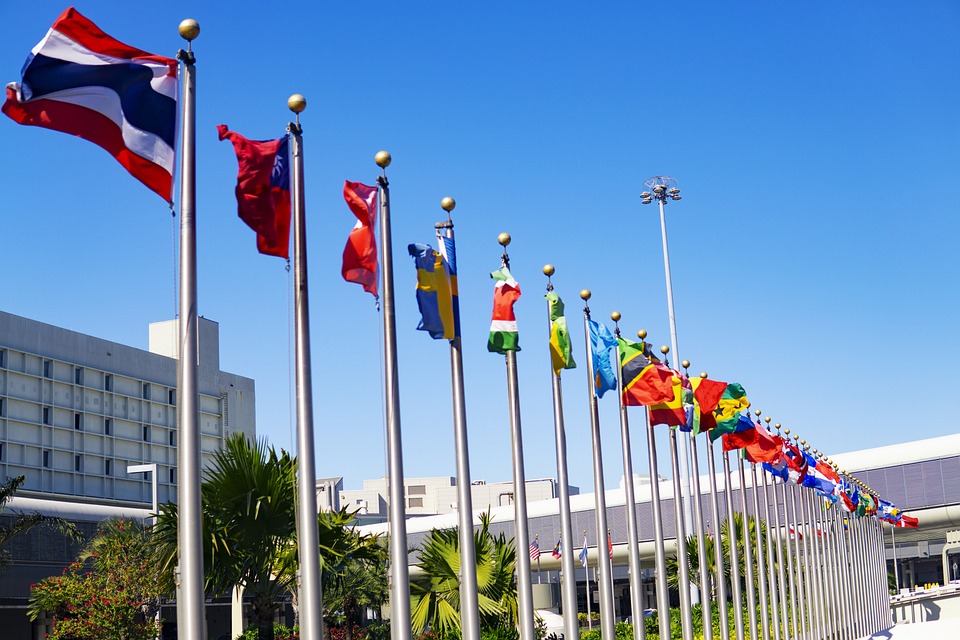The Intersection of Media and Politics in Shaping the Political Landscape
In today’s digital age, the role of media in shaping the political landscape has become more prominent than ever before. The relationship between media and politics is complex and multifaceted, with the media often influencing political discourse and shaping public opinion. From shaping public perceptions of political events to framing political debates, the media plays a crucial role in shaping the political landscape.
The Power of Media in Shaping Public Opinion
One of the key ways in which media influences the political landscape is through the power it holds in shaping public opinion. By controlling the narrative and framing political debates, the media has the ability to sway public perceptions of political events and issues. This can have a significant impact on the way in which individuals perceive political parties, candidates, and policies, ultimately shaping their voting behavior.
The advent of social media has only amplified the power of media in shaping public opinion. With the rise of platforms like Twitter, Facebook, and Instagram, news and information can spread rapidly, reaching millions of individuals in a matter of seconds. This has enabled politicians and political parties to directly communicate with the public, bypassing traditional media channels and shaping public opinion in real-time.
Media Bias and Partisanship
One of the key ways in which media shapes the political landscape is through bias and partisanship. Media outlets often have their own political leanings and biases, which can influence the way in which they report on political events and issues. This can lead to a situation in which individuals are only exposed to information that confirms their existing beliefs and biases, leading to the polarization of political discourse.
In recent years, there has been a growing concern about the rise of fake news and misinformation in the media. As individuals increasingly turn to social media for news and information, there is a risk that they may be exposed to false or misleading information. This can have a significant impact on public perceptions of political events and issues, ultimately shaping the political landscape in unexpected ways.
The Role of Politicians in Shaping Media Discourse
On the other hand, politicians also play a role in shaping media discourse. By strategically communicating with the media and framing political debates in a certain way, politicians can influence the way in which their messages are received by the public. This can be seen in the way in which politicians use social media platforms to communicate directly with their constituents, bypassing traditional media channels and shaping public opinion in real-time.
Politicians also have the power to shape media discourse through their interactions with journalists and media outlets. By granting interviews, press conferences, and exclusive access to information, politicians can influence the way in which their messages are reported in the media. This can lead to a situation in which certain politicians receive more favorable coverage than others, ultimately shaping public perceptions of political events and issues.
The Role of New Media in Shaping the Political Landscape
In recent years, the rise of new media platforms has had a significant impact on the way in which political information is disseminated and consumed. Platforms like Twitter, Facebook, and Instagram have enabled politicians and political parties to directly communicate with the public, bypassing traditional media channels and shaping public opinion in real-time. This has led to a democratization of political discourse, with individuals able to engage with political issues in ways that were not possible before.
The rise of new media platforms has also led to an increase in the spread of fake news and misinformation. As individuals increasingly turn to social media for news and information, there is a risk that they may be exposed to false or misleading information. This can have a significant impact on public perceptions of political events and issues, ultimately shaping the political landscape in unexpected ways.
In conclusion, the intersection of media and politics plays a crucial role in shaping the political landscape. By controlling the narrative and framing political debates, the media has the power to sway public perceptions of political events and issues. From shaping public opinion to influencing the way in which political messages are received, the media plays a crucial role in shaping the political landscape in today’s digital age.
